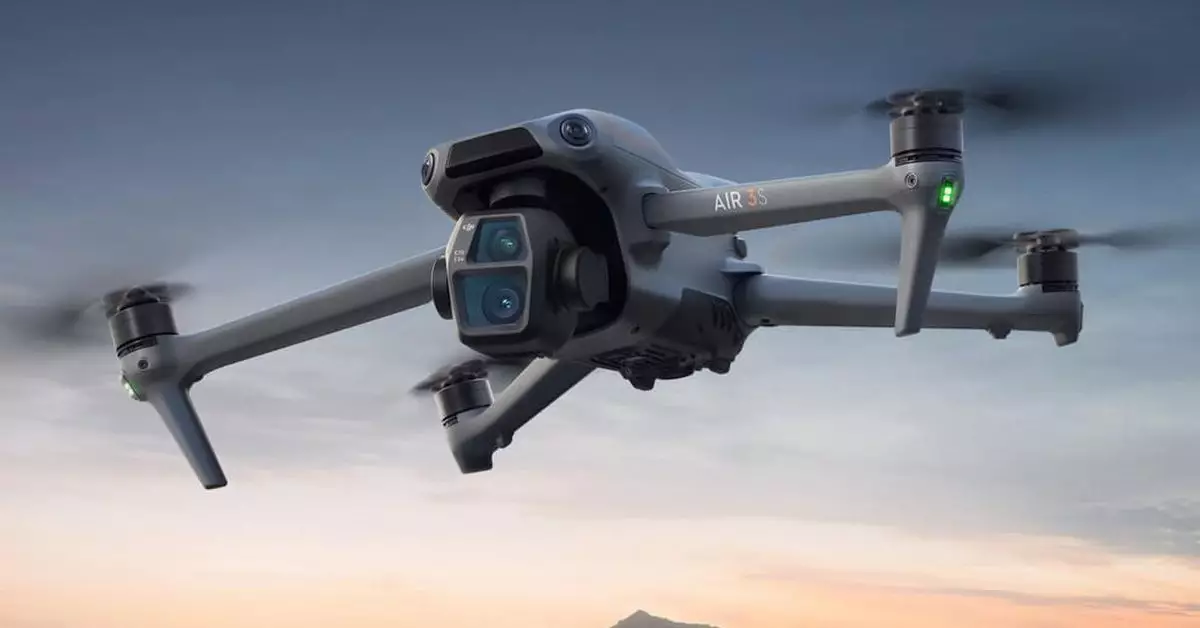In the competitive world of consumer technology, few companies have garnered as much attention and scrutiny as DJI, a leader in drone manufacturing. Recent developments involving DJI’s ability to import its latest flagship drone, the Air 3S, into the United States have ignited an array of discussions about trade restrictions, regulatory scrutiny, and human rights concerns. This situation serves as a poignant illustration of how international politics can impede technological advancements and consumer access.
DJI’s challenges are not the result of an outright ban on their drones in the U.S.; rather, they stem from increasingly stringent import restrictions imposed by the Department of Homeland Security (DHS). According to DJI, these regulations are part of a larger trend aimed at scrutinizing the origins of products, particularly those manufactured in China. The Uyghur Forced Labor Prevention Act (UFLPA) has emerged as a focal point in this discussion, as it seeks to prevent goods made with forced labor—specifically from regions where human rights violations have been reported—from entering the U.S. market.
In a revealing communication to distributors, DJI argued that U.S. Customs and Border Protection (CBP) is leveraging the UFLPA to halt imports of its drones. The company vehemently denies utilizing forced labor in its manufacturing processes and asserts that all its production occurs in compliance with U.S. laws and international standards. This tension highlights the broader implications of geopolitical tensions not just for DJI, but for consumers and retailers who may be left in limbo.
In an effort to clarify the situation, DJI has initiated the process of submitting documentation to U.S. Customs to demonstrate its compliance with existing laws. The company insists that it does not produce drones in the Xinjiang province—a region that has come under fire for its human rights abuses. In a blog post, DJI attempted to frame the issue as a misunderstanding, asserting its commitment to adhering to both legal and ethical standards.
This situation epitomizes the challenges faced by companies navigating complex regulatory landscapes, especially those with ties to nations that have strained diplomatic relations. The need for exhaustive documentation and transparent supply chains has never been more pressing as companies seek to reassure consumers and regulators alike that their practices are fair and responsible.
Complicating matters further, the political arena presents additional hurdles for DJI. While a bill aimed at banning the import of DJI drones passed the U.S. House of Representatives, it still requires Senate approval. The landscape is fluid; initial versions of the National Defense Authorization Act (NDAA) excluded the ban. However, it reappeared as an amendment, highlighting the uncertainty surrounding DJI’s future in the U.S. market.
Despite the turbulence, DJI claims that the primary effects of these customs restrictions have been felt in its operations for enterprise and agricultural drones, as well as accessibility issues for consumers seeking the Air 3S beyond DJI’s online store. The prospect of legal barriers looms ominously, but existing drone owners would still retain the ability to use their devices if import restrictions are enacted. Yet, the Federal Communications Commission’s (FCC) potential role in curtailing authorizations for existing devices could impose significant limitations on future DJI imports.
DJI’s current predicament underscores the intersection of technology and geopolitics, revealing how international relations can impact market availability, consumer choice, and even technological progression. As the company grapples with regulatory scrutiny, it raises important questions about the future of drone use in the United States. The unfolding saga not only affects DJI but also sets a precedent for how technology firms may operate under the watchful gaze of government regulations and international conflicts.
In an age defined by rapid technological advancements, stakeholders—ranging from manufacturers like DJI to regulators, retailers, and consumers—must navigate the delicate balance between innovation, ethics, and compliance. The outcome of this ongoing situation will likely have lasting repercussions, influencing not only drone technology but the broader landscape of international trade and human rights. As the dialogue continues, it remains to be seen how the regulatory landscape will evolve and what implications it will hold for the drone industry as a whole.

